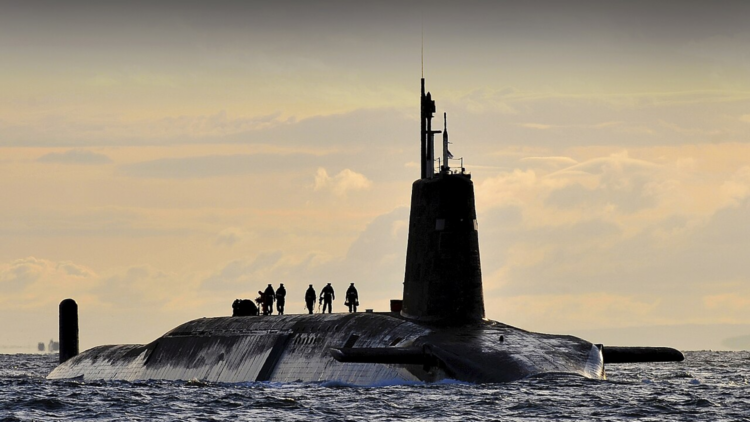Another notch on the bedpost of Trident’s test failures? Perhaps, but Shapps, standing firm against the tide of skepticism, painted a picture of unwavering faith in the Trident system’s unassailable stature in the pantheon of nuclear deterrence.
Political Repercussions and Defiant Reassurances
Opposition voices, notably from the Labour Party, cast their lot into the ring with furrowed brows and pointed fingers, labeling the mishap as “concerning.”
Yet, Shapps, channeling the indomitable spirit of a nation that has stood firm through tempests far greater than this, dismissed such doubts with the wave of a hand.
The Trident missile, a leviathan of the deep at 13 meters (43 feet) in length, is capable of striking fear and destroying targets with great precision at over 4,000 miles (6,437 kilometers) and remains the bulwark of Britain’s strategic might.
The Vanguard of the Future: Commitment to Nuclear Deterrence
The Vanguard-class submarines, those silent sentinels of the deep, soon to pass the torch to the mightier Dreadnought-class, stand ready.
They are the steel sinews and the nuclear heart of the UK’s resolve, a resolve that, despite the challenges and anomalies, remains as steadfast and unyielding as ever.
The government’s pledge to the Trident system and its role as the guardian of the realm and its allies’ shield remains undiminished.
Steadfast in the Storm: Britain’s Trident Holds Course
So, as the dust settles and the ripples fade into the vastness of the ocean, the narrative remains unchanged.
With its eyes set firmly on the horizon, the UK reaffirms its commitment to the Trident, a testament to its readiness to stand guard over the nation’s interests and its allies, come what may. In the grand chessboard of global security, Britain’s move is clear – a step not back but forward, with the Trident missile as its queen.
This is the essence of what transpired: a saga of power, perseverance, and unwavering belief in the instruments of peace and war.
As the world turns its gaze upon constantly changing events, one thing remains certain: the UK’s Trident missile, stands as a beacon of deterrence, an unyielding symbol of a nation’s resolve to defend its shores and uphold the mantle of peace, by force if necessary.










COMMENTS